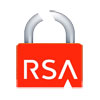RSA: Chaos In the Security World, And the Situation Is Perfect
Right on cue this week, the anarchic hacking collective Anonymous stepped up and grabbed the story line away from the lions of the IT security industry.With the annual RSA Conference set to begin, the whistle blowing site Wikileaks released the first of some five million e-mail messages stolen from the security intelligence firm Stratfor. Ever sensitive to the fickle attention of the media, Anonymous inserted itself into the story, claiming responsibility for leaking the data and pointing a finger of blame at Stratfor and its media, private and public sector customers, which Anonymous accuses of spying and other dark offenses.













